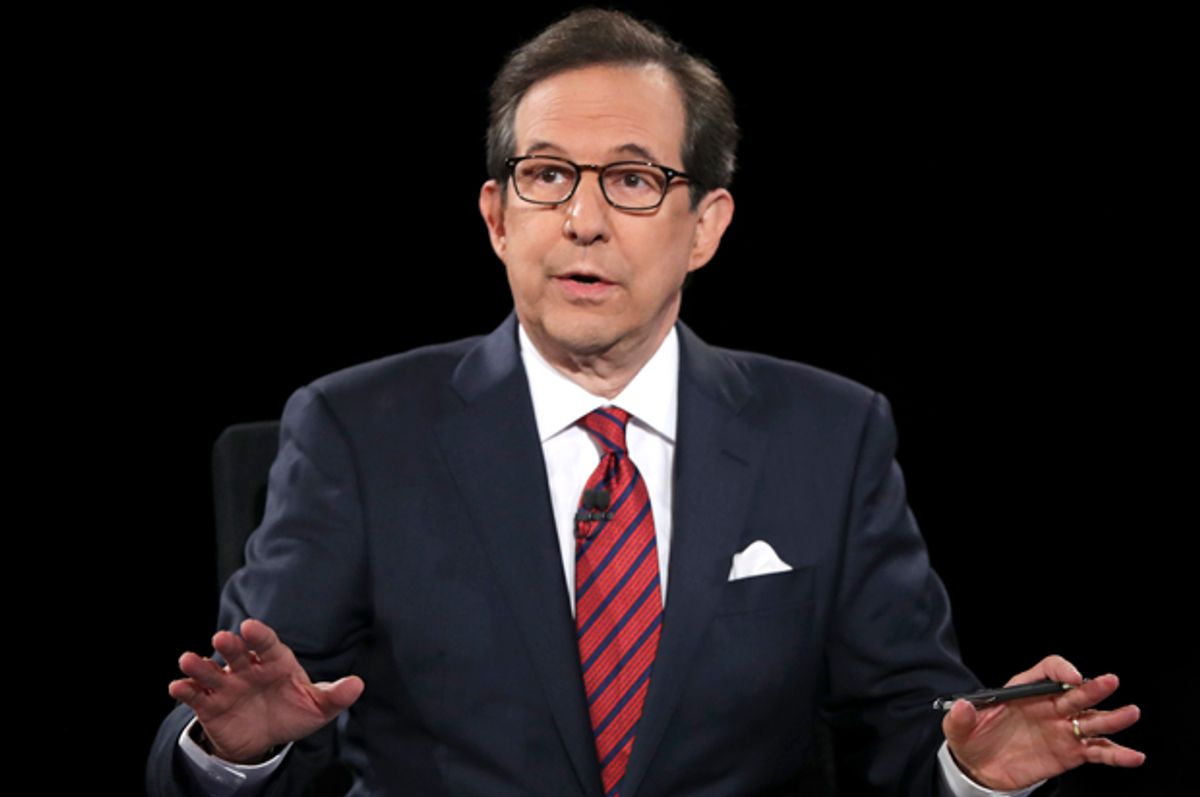One fiscal conservative, billionaire Pete Peterson, has an outsized role in shaping this election season's debate on economic policy.
Peterson, who runs the Committee for a Responsible Federal Budget, an advocacy group that focuses on shrinking the budget deficit as a major policy priority — has asked four questions about the deficit during this debate cycle, as noted by The Intercept. Peterson is one of the board members as well as one of the nation’s main fundraisers for anti-deficit advocacy, including financially supporting the committee.
Meanwhile, other important issues — climate change, for example — have been shut out completely.
During the Oct. 5 vice presidential debate between Indiana Gov. Mike Pence and Virginia Sen. Tim Kaine, the CRFB was cited twice by moderator Elaine Quijano.
- “According to the nonpartisan Committee for a Responsible Federal Budget, neither of your economic plans will reduce the growing $19 trillion gross national debt. In fact, your plans would add even more to it. Both of you were governors who balanced state budgets. Are you concerned that adding more to the debt could be disastrous for the country. Governor Pence?”
- “Senator Kaine, on the issue of Social Security, in 18 years, when the Social Security Trust Funds run out of money, you'll be 76. The Committee for a Responsible Federal Budget estimates your benefits could be cut by as much as $7,500 per year. What would your administration do to prevent this cut?”
The other two were presented by Chris Wallace during Wednesday's third presidential debate between Hillary Clinton and Donald Trump:
- “Our national debt as a share of the economy, our GDP is now 77 percent. That's the highest since just after World War II, but the non-partisan Committee for a Responsible Federal Budget says, Secretary Clinton, under your plan, debt would rise to 86 percent of GDP for the next ten years. Mr. Trump, under your plan, they say it would rise to 105 percent of GDP over the next ten years. The question is why are both of you ignoring this problem? Mr. Trump, you go first.”
- “The biggest driver of our debt is entitlements, which is 60 percent of all federal spending. Now the committee for a Responsible Federal Budget has looked at both of your plans and they say neither of you has a serious plan that is going to solve the fact that Medicare is going to run out of money in the 2020s, Social Security is going to run out of money in the 2030s, and at that time, recipients are going to take huge cuts in their benefits. In fact, the final question I want to ask you in this regard is — and let me start with you, Mr. Trump. Would President Trump make a deal to save Medicare and Social Security that included both tax increases and benefit cuts, in effect a grand bargain on entitlements?”
Despite the urgency embedded in how Quijano and Wallace phrased their questions — which they no doubt picked up from the Committee for a Responsible Federal Budget itself — many economists strongly disagree with the idea that the budget deficit should be our top priority. As economist Dean Baker pointed out, long-term interest rates are at a 60-year low, inflation below 2 percent, and interest currently less than 1 percent of our GDP, all of which suggest that the deficit is not a serious problem right now.
“The fact that the deficit hawks can scream endlessly about the horrible interest burden on our children, but don’t even seem to notice the costs being imposed by patent and copyright monopolies, suggests that they are not really concerned about our children’s well-being,” he wrote. “Alternatively, they may have a very poor understanding of economics. Either way, their whining does not deserve the public’s attention.”



Shares